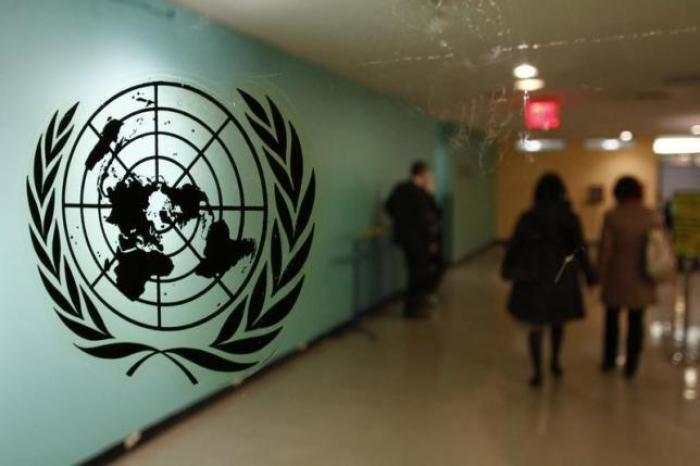China, Pakistan, Cuba elected to UN Human Rights Council; critics speak out

Countries that have engaged in religious freedom violations, such as China, Russia, Pakistan and Cuba, have been elected by the United Nations General Assembly to the 47-member U.N. Human Rights Council, drawing criticism from human rights groups.
On Tuesday, the 193-member General Assembly elected 15 countries to serve on its premier body for protecting human rights worldwide for there-year terms. The council not only proposes resolution on human rights issues but also oversees investigations into violations of religious freedom.
Among the countries elected to the panel are those included by the U.S. State Department either on its list of countries of particular concern for religious freedom violations or on its “special watch list” of countries that engage in or tolerate severe violations of religious freedom.
Seats on the Human Rights Council are allocated by region. According to the Associated Press, most of the 15 members elected to the council Tuesday were elected in uncontested races.
Russia and Ukraine were victorious for the East Europe seats, while Mexico, Cuba and Bolivia won three open seats for the Latin American/Caribbean region. Cuba and Russia were among countries that ran opposed.
In a race contested five ways, China, which is said to have detained over 1 million Uighur and other ethnic Muslims in Western China, beat out Saudi Arabia
Before Tuesday’s election, human rights groups called on U.N. member states to oppose the election of China, Russia, Saudi Arabia, Cuba, Pakistan and Uzbekistan, saying those countries’ human rights records make them “unqualified.”
According to UN Watch, the percentage of non-democracies on the U.N. Human Rights Council has now risen to 60% of the seats. In 2018, the U.S. withdrew from the U.N. Human Rights Council as the Trump administration accused the body of being a “hypocritical and self-serving organization that makes a mockery of human rights."
“The election of China, Russia, and Cuba to the UN Human Rights Council validates the U.S. decision to withdraw from the Council in 2018 and use other venues to protect and promote universal human rights,” U.S. Secretary of State Mike Pompeo argued in a tweet. “At #UNGA this year, we did just that.”
While pointing out that the Chinese government is responsible for “industrial-scale human rights violations” and “the deaths in custody of peaceful critics,” Human Rights Watch China Director Sophie Richardson noted in a statement that China lost 41 votes from its previous tally in 2016 as it has come under global scrutiny for the Chinese Communist Party’s treatment of religious minorities.
“Vocal opposition to the Chinese government’s appalling human rights violations is also growing in other UN forums,” Richardson wrote. “In October 2019, 23 governments blasted China over its abuses in Xinjiang at the General Assembly’s Third Committee; a year later that figure has risen to 40 and the substance broadened to address concerns about Hong Kong and Tibet.”
As many as 85 Cuban human rights groups and independent media organizations in an open letter condemned the election of Cuba to its fifth term on the council, according to Diario de Cuba.
Cuba, which received 170 votes, was placed on the State Department “special watch list” of countries that engage in or tolerate severe violations of religious freedom last December and has regularly been accused of imprisoning religious leaders and democracy advocates.
The groups argued that Cuba’s continued election to the council “undermines the integrity of the council” to hold abusive governments accountable.
"Nations that have the honor of serving on the Council must commit to international human rights law,” they urged. “Council members must ensure that Cuba does not shirk responsibility for its own conduct or use its seat to weaken these international norms.”
As for Pakistan, which secured 169 votes to be elected to the council, it is ranked as the fifth worst country in the world when it comes to Christian persecution, according to Open Doors USA’s 2020 World Watch List.
In Pakistan, Christians and other religious minorities have on several occasions been falsely accused of blasphemy by those from within the majority Muslim population. Dozens have been tried and convicted under Pakistan’s blasphemy law, which is a crime that is punishable by death or life in prison.
Pakistan is also listed by the U.S. State Department as a “country of particular concern” for tolerating or engaging in egregious violations of religious freedom.
Russia, which is ranked as the 46th worst country when it comes to Christian persecution, was elected to the council with 158 votes.
In Russia, the government has imposed an anti-terror law that has led to an increase of persecution against non-Orthodox Christian churches, according to Open Doors. This has caused Christian activity to come under state surveillance.
“Currently, 51% of UN Human Rights Council members fail to meet the minimal standards of a free democracy,” Hillel Neuer, executive director of UN Watch, said in a statement.




























